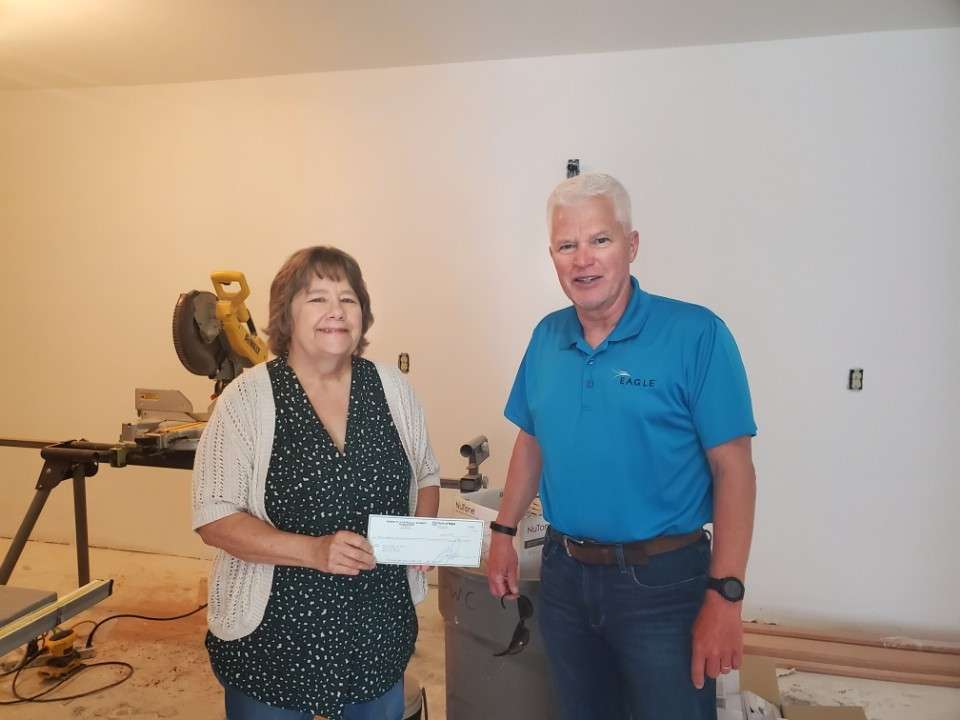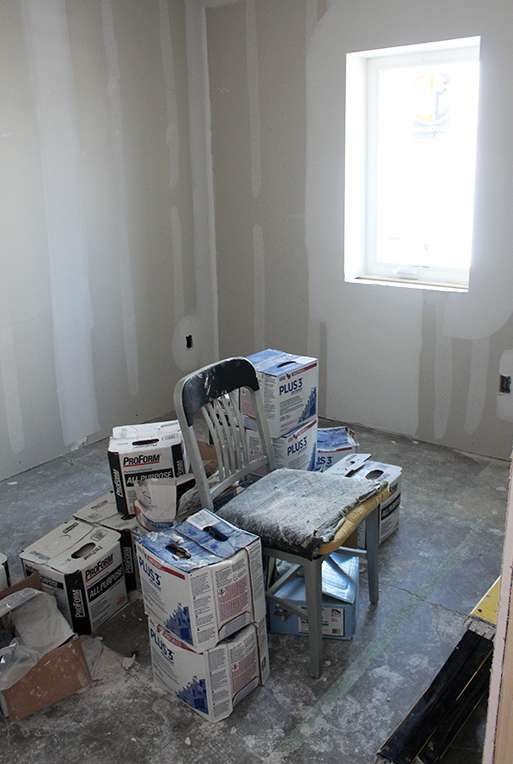
By CRISTINA JANNEY
Hays Post
The First Step Housing Project has reached its $250,000 fundraising goal.
Officials hope to open the four-bedroom temporary housing unit in mid-August.
The renovations to add the housing units to the First Call for Help building at 607 E. 13th St. are almost complete.
Linda Mills, First Call for Help director, which oversees the project, said the project was able to raise $50,000 to receive an additional $50,000 match from the Robert E. and Patricia A. Schmidt Foundation by the end of June.
The Dane G. Hansen Foundation also donated $50,000 to the project. ECMA donated $25,000 to the first phase of the renovation, which included the addition of a multi-purpose room to the building.
First United Methodist Church and the Union Pacific Foundation each donated $25,000 to the project.
The project received $20,000 in Ellis County federal COVID relief CARES funds, as the project was not able to conduct fundraisers during the pandemic.

Other organizations and individual donors came forward in the last several weeks to help the organization reach its goal.
Mills said the project received donations in amounts from $5 to $11,000 from individuals from across the community.
"We are excited to get started and thankful that the community has backed us," Mills said.
Other organizations donating to the project included the Wonder Women League, Heartland Community Foundation, Cornerstone Orthodontics, Fort Hays State University 310 class, Kiwanis, Rotary, Ellis County Bar Association, St. Nicholas of Myra Catholic Church, First Baptist Church, Hays Christian Church, as well as other area church donors who wished to remain anonymous.
"We are really thankful for all that and that we are finally able to open our doors and start serving the people in the community," Mills said.
"It will make a big impact on the participants' lives that will be here, but it will also make an impact on the community to have those folks be able to have more stability than what they have had in the past — once they move out of here into their own places."

Mills said children are hit especially hard by housing instbaility.
"It's really hard for them when they are trying to go to school and do what kids are supposed to do, but they are worried about their parent. They are worrying about their house. They're worrying about their electricity getting shut off."
Even after First Step is open, there will still be a need for housing assistance in the community, Mills said.
First Call for Help is annually receiving 70 to 100 requests for housing assistance. The program has not had the means to meet that need and still won't even with the First Step Project.
The size of the rooms in the First Step units are also going to make it difficult for the program to accommodate families of any size.
First Call for Helps' programs are an oasis in northwest Kansas. No other homeless shelters exist between Salina and Denver.
The program is still needing household items to furnish the living units. It has already purchased furniture. But a number of housewares like flatware and some bedding are on wish list on Amazon. A link can be found on the First Call for Help homepage. The items can also be purchased locally if the donor wishes.
The First Step facility encompasses about 1,000 square feet and consists of four units in the rear of First Call for Help's existing building.
Each bedroom will have bunk beds with a private bathroom. One unit is handicap accessible. The facility will have a shared laundry facility and kitchenette, as well as a small community room.
The facility have room for eight people, possibly more if a family with children uses a cot or a crib.
Applications for the program will start to be accepted soon, Mills said.
The program hopes to have an open house and ribbon-cutting before participants start to move in, but a date has not yet been set.
The program will accept families, single parents with children and single females — no single males. Participants have to be drug- and alcohol-free and not have a criminal history that includes violent or sexual crimes.
The participants will stay in the transitional units for up to six months, Mills said.
During that time, Laura Allen, First Call for Help client services specialist, will help the residents work through a financial literacy program. They can save for a deposit for their own rentals. If they are unemployed, they can work toward finding jobs, Mills said.
"In today's society because wages have not gone up very much and there's a lot of part-time employment, it gets harder and harder to do those basic things," Mills said.
"We will be working with them on ways they can either earn extra income or provide those services in their families for maybe a little bit less than they have been paying."
Mills said many resources are available in Hays, but many people don't know about them because they haven't had to use them.
First Step hopes to connect participants with those resources.






